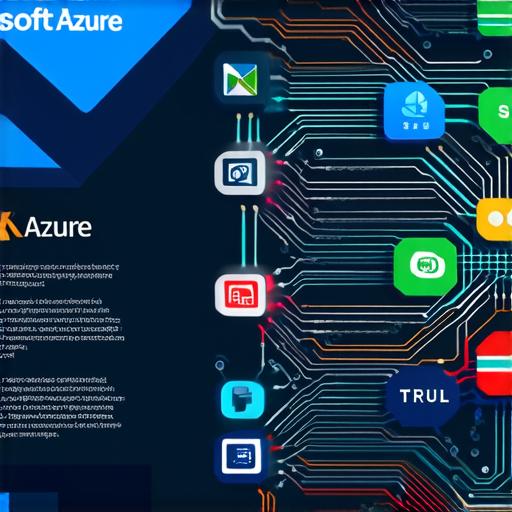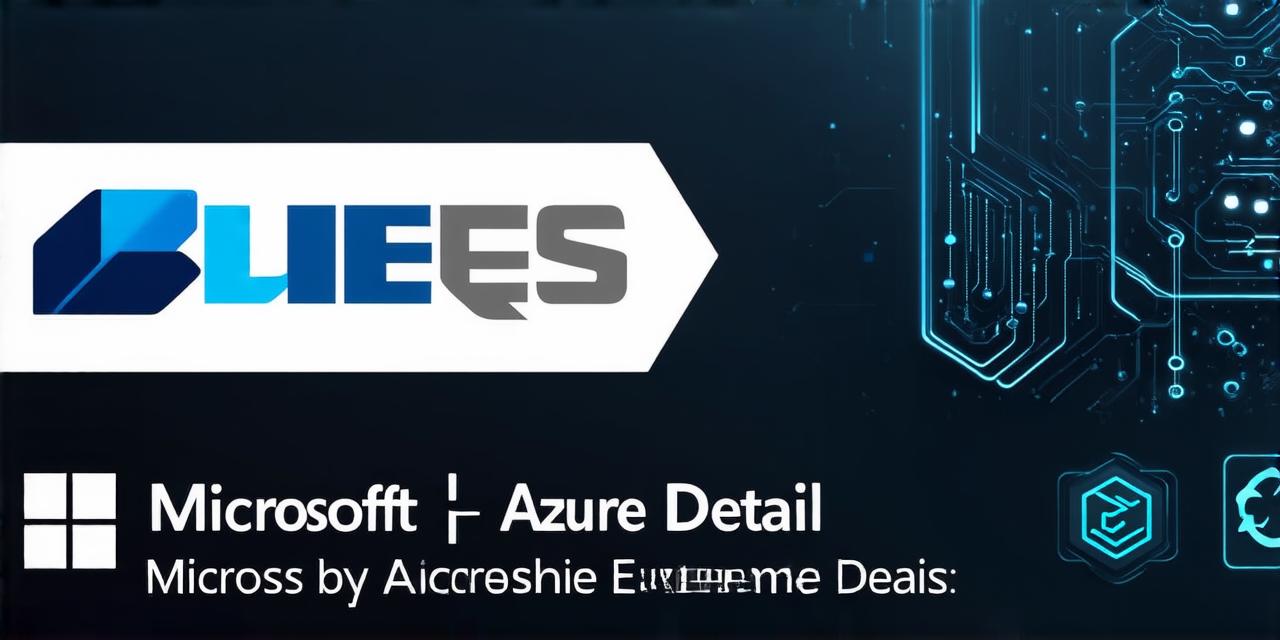Introduction
As the world becomes increasingly digitalized, blockchain technology has emerged as a powerful tool for businesses to securely and transparently store and transfer data. With its decentralized architecture, blockchain eliminates the need for intermediaries, making it a popular choice for industries ranging from finance to supply chain management.
Understanding Blockchain Technology
Blockchain is a decentralized technology that uses cryptography to securely store and transfer data across a network of computers. It eliminates the need for intermediaries, making it an attractive option for industries looking to increase transparency and security. The key features of blockchain technology include:
- Decentralization: Data is stored across a network of computers, rather than on a central server. This makes it more secure and resistant to hacking attempts.
- Immutability: Once data is stored on the blockchain, it cannot be altered or deleted. This ensures that the integrity of the data is maintained.
- Transparency: All transactions on the blockchain are visible to all participants in the network. This increases transparency and accountability.
Blockchain Platforms Supported by Microsoft Azure
Microsoft Azure supports several blockchain platforms, including Ethereum, Hyperledger Fabric, and Corda. These platforms offer different capabilities and use cases, making them suitable for different industries and applications.
Ethereum
Ethereum is the most widely used blockchain platform, with a market capitalization of over $400 billion as of March 2021. It was created in 2015 by Vitalik Buterin and is designed to support decentralized applications (DApps). Ethereum offers a range of features, including:
- Smart Contracts: Ethereum allows developers to create smart contracts, which are self-executing programs that can automate complex processes.
- Decentralized Storage: Ethereum offers decentralized storage, which eliminates the need for central servers and increases security.
- Decentralized Finance (DeFi): Ethereum is the backbone of DeFi, a range of financial services built on blockchain technology.
Microsoft Azure supports Ethereum through its Azure Blockchain Service, which allows developers to build and deploy Ethereum-based solutions on the cloud. The Azure Blockchain Service provides tools and resources for developing, testing, and deploying smart contracts and DApps. It also offers integration with other Azure services, such as Azure Cognitive Services and Azure Event Grid.
Hyperledger Fabric
Hyperledger Fabric is an open-source blockchain platform created by IBM and the Linux Foundation. It was designed to support enterprise-grade blockchain applications, with a focus on privacy and scalability. Hyperledger Fabric offers a range of features, including:
- Modular Architecture: Hyperledger Fabric has a modular architecture, which allows developers to customize the platform to meet their specific needs.
- Confidential Transactions: Hyperledger Fabric supports confidential transactions, which allow data to be shared securely between participants without revealing it to other parties.
- Smart Contracts: Hyperledger Fabric supports smart contracts, which can automate complex processes and increase efficiency.
Microsoft Azure supports Hyperledger Fabric through its Azure Blockchain Service, which allows developers to build and deploy enterprise-grade blockchain applications on the cloud. The Azure Blockchain Service provides tools and resources for developing, testing, and deploying smart contracts and DApps. It also offers integration with other Azure services, such as Azure Cognitive Services and Azure Event Grid.
Corda
Corda is a blockchain platform developed by R3, a consortium of banks and financial institutions. It was designed to support enterprise-grade blockchain applications, with a focus on privacy and scalability. Corda offers a range of features, including:
- Notary Network: Corda has a notary network, which allows data to be shared securely between participants without revealing it to other parties.
- Smart Contracts: Corda supports smart contracts, which can automate complex processes and increase efficiency.
- Confidential Transactions: Corda supports confidential transactions, which allow data to be shared securely between participants without revealing it to other parties.
Microsoft Azure supports Corda through its Azure Blockchain Service, which allows developers to build and deploy enterprise-grade blockchain applications on the cloud. The Azure Blockchain Service provides tools and resources for developing, testing, and deploying smart contracts and DApps. It also offers integration with other Azure services, such as Azure Cognitive Services and Azure Event Grid.
Case Studies and Personal Experiences
There are several real-life examples of businesses using blockchain technology to develop innovative solutions. In this section, we will explore some case studies and personal experiences to illustrate how these platforms can be used in practice.
Ethereum
Ethereum has been used to develop a range of innovative solutions, including:
- Decentralized Finance (DeFi): DeFi is a range of financial services built on blockchain technology, and Ethereum is the backbone of DeFi. Applications built on Ethereum include decentralized exchanges, lending platforms, and prediction markets.
- Supply Chain Management: Blockchain technology has been used to improve supply chain management by providing transparency and traceability. Companies such as Walmart and Maersk have implemented blockchain-based solutions using Ethereum to track the movement of goods across their supply chains.
Hyperledger Fabric
Hyperledger Fabric has been used to develop enterprise-grade blockchain applications, including:
- Financial Services: Hyperledger Fabric has been used to develop a range of financial services, including cross-border payments and trade finance. For example, HSBC has developed a blockchain-based solution using Hyperledger Fabric to streamline its trade finance operations.
- Healthcare: Blockchain technology has been used to improve healthcare by providing transparency and traceability. Companies such as MediLedger have implemented blockchain-based solutions using Hyperledger Fabric to track the movement of prescription drugs across the supply chain.
Corda
Corda has been used to develop enterprise-grade blockchain applications, including:

- Financial Services: Corda has been used to develop a range of financial services, including cross-border payments and trade finance. For example, ING and RBC have developed a blockchain-based solution using Corda to streamline their financial operations.
- Healthcare: Blockchain technology has been used to improve healthcare by providing transparency and traceability. Companies such as Pfizer have implemented blockchain-based solutions using Corda to track the movement of pharmaceuticals across the supply chain.
Microsoft Azure
Microsoft Azure supports three popular blockchain platforms: Ethereum, Hyperledger Fabric, and Corda. These platforms can be used to develop innovative blockchain applications in a range of industries, including finance, healthcare, and supply chain management. By leveraging the tools and resources provided by Azure Blockchain Service, developers can build and deploy smart contracts and DApps on the cloud, increasing efficiency and reducing costs.
Conclusion
In conclusion, Microsoft Azure supports three popular blockchain platforms: Ethereum, Hyperledger Fabric, and Corda. These platforms can be used to develop innovative blockchain applications in a range of industries, including finance, healthcare, and supply chain management. By leveraging the tools and resources provided by Azure Blockchain Service, developers can build and deploy smart contracts and DApps on the cloud, increasing efficiency and reducing costs.
